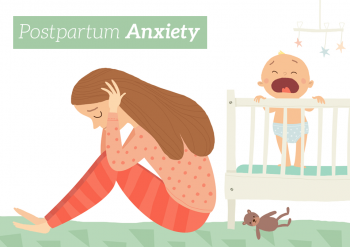The first few weeks after giving birth can be a whirlwind of emotions for new mothers. Joy, exhaustion, anxiety, excitement, and happiness all come together in a strange blend of feelings.
However, for some women, this period can be much harder to navigate. Like postpartum depression, postpartum dysphoria (PPD) is a common condition among new mothers. But unlike depression, PPD is not widely known, making it even more challenging for new moms to get the help and support they need.
In this blog post, you will learn about postpartum dysphoria: its causes, symptoms, and coping strategies. Do not forget to seek help and support to overcome this treatable condition.
Understanding postpartum dysphoria
Postpartum dysphoria, also known as postpartum sadness, is a condition that affects roughly 10 percent of new mothers. It is a type of depression that occurs within the first few weeks of giving birth.
This condition is different from postpartum depression, which generally occurs a few months after childbirth. PPD and postpartum dysphoria are not the same thing, but they have similar symptoms.

One of the main things that differentiate postpartum dysphoria from postpartum depression is the intensity of the feelings. Women who experience PPD typically feel sadness and fatigue, whereas those with PDD may feel overwhelmed, irritable, and even angry.
Symptoms of postpartum dysphoria
The symptoms of postpartum dysphoria can vary from woman to woman, but they often include intense feelings of sadness, irritability, and confusion.
Some women may have trouble bonding with their baby or finding joy in activities they once loved.
Other symptoms can include anxiety and panic attacks, difficulty sleeping, loss of appetite, poor concentration, physical symptoms such as headaches or dizziness, and lack of interest in sex.

What causes postpartum dysphoria?
Like many mood disorders, postpartum dysphoria’s exact causes are not entirely understood. However, most researchers agree that hormonal changes play a significant role.
After giving birth, a woman’s hormones fluctuate rapidly, and these fluctuations can lead to physical and emotional changes.
Other factors that may increase the risk of postpartum dysphoria include a history of depression, lack of social support, high levels of stress, complications during childbirth, and a difficult pregnancy.
How to cope with postpartum dysphoria
If you are experiencing symptoms of postpartum dysphoria, it is essential to seek help. There are several coping strategies that can help you manage your symptoms.
Such as talking to a counselor or therapist, reaching out to friends and family for support, taking care of yourself by getting enough sleep, exercise, and eating nutritious food, and joining a support group for new moms.
It is essential to remember that postpartum dysphoria is treatable, and with proper care, you can overcome it.
Support and compassion
Postpartum dysphoria can be a challenging condition to deal with, but it is essential to know that you are not alone. If you are experiencing symptoms of postpartum dysphoria, it’s crucial to seek help from a medical professional.

With proper treatment and support from loved ones, you can overcome this condition and feel like yourself again. Remember, new motherhood is a beautiful thing, but it’s okay if it feels hard or overwhelming at times. Support and self-compassion are keys to getting through it.
Support for new mothers
New motherhood can be challenging, and it’s essential to have a support system in place. Family, friends, and healthcare professionals can all provide support and guidance during this time.
There are also support groups for new mothers that can provide a safe space to share experiences and connect with others going through similar experiences.
It’s important to prioritize self-care during this time, too. This may mean getting enough sleep, eating well, and making time for activities.

Postpartum dysphoria can be a challenging condition to deal with, but it is crucial to know that you are not alone. If you are experiencing symptoms of postpartum dysphoria, it’s crucial to seek help from a medical professional.
With proper treatment and support from loved ones, you can overcome this condition and feel like yourself again. Remember, new motherhood is a beautiful thing, but it’s okay if it feels hard or overwhelming at times. Support and self-compassion are keys to getting through it.


